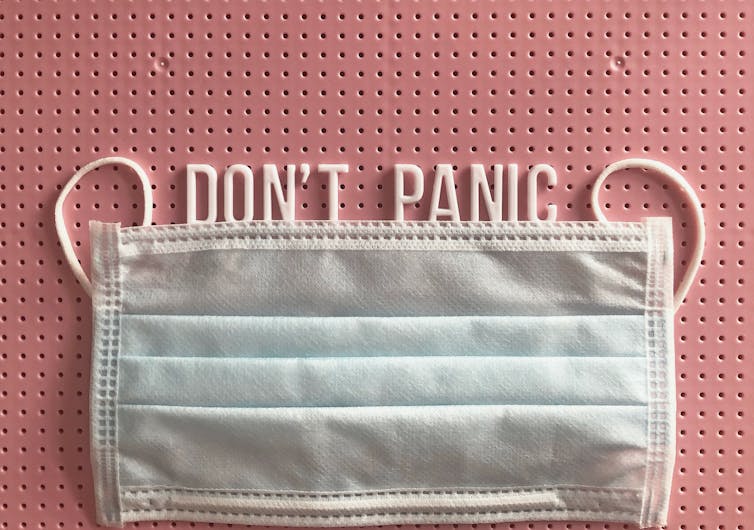Business and Economy
How COVID has affected UK businesses – and what happens after July 19

Britain will be finally free of most of the restrictions placed on it during the pandemic from July 19 (and Northern Ireland from July 26). Armed with the knowledge that the majority of the adult population has been double-vaccinated, officials are removing almost all legal restrictions on social contact.
What does this mean for business? Is the worst over now? Can everyone go back to managing the successful businesses they were running before the pandemic, generating tax receipts for the hard-pressed Treasury to repay the £372 billion it has spent on supporting the country through COVID-19?
At the start of the pandemic, business observers, including myself, were calling out the sectors that we thought would do well – or badly – as restrictions were imposed. Some sectors didn’t need a crystal ball to make an accurate prediction.
All restaurants, pubs and clubs were closed in 2020, and every music festival and physical conference was cancelled. With the restrictions continuing well into the second half of 2021, it is therefore not surprising that the sectors with the highest furlough rates, as of May 31, were accommodation and food services, with 34% (133,000) of eligible workers furloughed, and also arts, entertainment and recreation, with 29% (41,700) furloughed.
Cash flow, where it could be found, sustained some of these businesses through the tough times. To give just one example, the members’ club Soho House (full disclosure: I am a member) required members to keep paying their subscriptions monthly through the two time periods where it had to shut, but credited the sum to their accounts to be spent when it reopened.
This helped to ensure that 92% of members stayed signed up in 2020. With over 59,000 membership applicants as at May 30 2021, Soho House – holding company now renamed the Membership Collective Group – has come out of the pandemic in sufficiently good shape to be launching its IPO in the US this week, valuing the company at US$2.8 billion (£2 billion).
Retail and travel woes
While food retail boomed – and is seeing the fall-off now that we are all going out to eat again – other retail, especially that anchored on the high street, has been a long story of closures. Arcadia, Victoria’s Secret, TM Lewin, Jaeger, Harveys Furniture, Bonmarché and many more ended up in administration despite 100% business rate relief and many other government initiatives to help them.
High-street shops and shopping malls had been having difficulties already, not least because of online competition, and a pandemic was the last thing they needed. In 2020, total retail sales volumes fell by 1.9% compared with 2019, the largest annual fall on record.
International travel remains a very depressed sector and the July 19 freedoms won’t help much, with the US and many other parts of the world remaining closed to UK nationals. Many flight crew remain on furlough and British Airways, already one of the biggest recipients of furlough monies, started putting staff back on furlough in June as the horizon for the resumption of travel stretched further into the distance.
My local airport, Edinburgh, recorded its lowest number of passengers since 1995 in the last 12 months, and the outlook remains bleak. The airport handled a little under 3.5 million passengers in 2020, a 76% reduction on the previous year. This is estimated to have cost the Scottish economy around £1 billion and over 21,000 jobs. Flights from, to and within the whole of the UK, which in 2019 ranged between 5,000 and 6,500 per day, are currently at just 1,000.
The winners
There have been some predictable successes, of course. Amazon, Royal Mail, Hermes, DPD – everyone who delivers to the door – have all done well. If you manufacture cardboard in the UK, it has been a record 12 to 18 months.
But there have also been sectors where things went much better than expected. Debt collection companies, for instance, had anticipated problems from so many people potentially losing their jobs, but instead saw much better collection rates as those who couldn’t go out and spend repaid their debts instead. Arrow Global, the debt collector and alternative asset business which is in the middle of being swallowed up by private equity, has said that in the first quarter of 2021 it collected over 6% more than it had expected.
People stuck at home with more disposable income than usual didn’t just repay their debts – they also noticed that their house needed fixing, which has propelled companies like Howden Joinery to announce a profit warning – upwards. The company expects a pre-tax profit of £300 million for 2021, up 62% from £185 million in 2020.
Meanwhile, company formation didn’t suffer in 2020 – 772,002 new businesses were formed in the UK, up 13% on 2019. Many were in sectors that benefited from the pandemic, such as manufacturers of personal protective equipment (PPE) or disinfectants, camp sites catering for all the staycationers, and takeaway food companies.

The furlough scheme has also kept unemployment at bay, contrary to predictions. In April 2020, the worst month for economic activity across the whole pandemic period, the government’s Office for Budget Responsibility (OBR) published a reference scenario where unemployment would peak at 10% in quarter 2 of 2020, falling to 8.5% and 7.0% in quarters 3 and 4. In reality, the highest rate of unemployment in 2020 was 5.1% in quarter 4.
What now?
So what will happen when restrictions are lifted on Monday? Can we look to summer 2020 as an indicator of the changes that will take place?
In 2020, after restrictions were eased off in June, retail sales as a whole recovered quickly to pre-pandemic levels, while hospitality and entertainment had a much slower or non-existent recovery – despite the government’s Eat Out to Help Out scheme. In January and February 2021, when non-essential retail shut again, sales were affected again, but the fall was much less significant than early 2020, suggesting that retailers and consumers had adapted to restrictions.
So I don’t predict that July 19 will make very much difference to general retail. However, if you are in a business in live events – music festivals, theatre, conferences, and of the course the great British wedding industry – then July 19 is the date you can finally get going again.
Expect a surge in demand, since unlike last year the limits on gatherings are now going. Combined with the enforced saving that many have done over the last 18 months, this may see the average wedding exceed the £31,000 it was estimated to have cost in 2019.
I might be wrong, of course. In March 2020, investment banking industry commentators were predicting a drop in fees of up to 50% in the first six months of the year, and thought that hundreds of investment bankers would lose their jobs.
What really happened was that global investment banking fees during 2020 reached US$127.5 billion – an 18% increase compared to 2019, and the strongest annual period since records began in 2000. In the UK, investment banks raked in a total £4.9 billion in 2020, marking a 3% rise compared to 2019. This was helped by a surge in capital markets activity in the second quarter as companies raced to refinance and shore up liquidity, generating handsome fees for the bankers.
Globally, lenders earned US$42.9 billion underwriting debt in 2020, up 25% compared to the previous high a year earlier. Things have continued in this vein into 2021. During the first quarter, where both IPOs and private equity bids for public companies have seen record levels, investment banking fees reached US$39.4 billion, the strongest overall quarter on record.
Maybe predictions are not that easy after all.![]()
Heather McGregor, Executive Dean of Edinburgh Business School, Heriot-Watt University
This article is republished from The Conversation under a Creative Commons license. Read the original article.





















